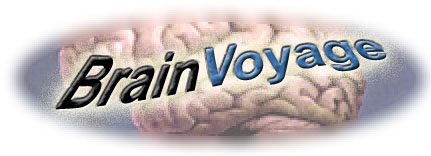


FEATURED BOOKS:
Reality Begins with Consciousness |
Cry the Beloved Mind |
Déjà Vu Trilogy
RBC-Key Features | RBC-Glimpses and Glossary | Collector's Items |
Forensic Expert |
Quakes |
Innovative Psychopharmacotherapy |
Déjà Vu Revisited |
Déjà Vu: Second Look |
Déjà Vu Glossary & Library
For more on the following click here:
Déjà Vu |
Forensics |
Stress |
Seizures & Spells |
Anxiety & Depression |
Dieting and Nutrition
More on Cry the Beloved Mind |
More on Déjà Vu |
More on Attorney Experts
RELATED SITES: www.pni.org | www.vernonneppe.org | www.tddvp.com | www.ecao.us | www.healthyharmony.com
Why sciction is broadly classified as non-fiction.
How does one classify "sciction"?
Sciction is a type of non-fiction with specific characteristics:
- It must educate as its primary goal.
- It must portray real scientific endeavor not futuristic scientific imagination as in science fiction.
- The educational information must be based on fact.
- The information must be upgradeable: In fiction, the contents are largely immutable except for possibly translations into more modern language, or dialects or other languages. In sciction, information may become outdated which means book revisions may be associated with revisions of the factual scientific contents of the text, like any other textbook.
- It must have a distinct literary style: dialogue, characterization, play within prose, composites of reality all are features that reflect this genre of sciction.
Cry the Beloved Mind as an example of non-fiction.
Why is Cry the Beloved Mind appropriately classified under the broadest guise of "non-fiction"?
With the classification of Dr Neppe's new pioneering classic, Cry the Beloved Mind: A Voyage of Hope in the new literary genre of "sciction" the question is legitimately asked, is it non-fiction or fiction?What parts allow for fiction?
This is more than theoretical as it is currently the only book specifically defined as in the literary genre of sciction, though no doubt others exist. Sciction has most similarities to another new literary genre called "creative non-fiction" which is non-fiction with fictitious embellishments. We believe it to be different, however, from creative non-fiction because there are no such fictitious embellishments. Every facet of this book Cry the Beloved Mind: A Voyage of Hope is based on fact.
Why then "sciction"? Where does the fiction come in? It is only a peripheral facet. The characterization of the student, Andrew is fictitious, though, he could resemble many medical students. The dialogue between doctor and patient, and doctor and medical student is based on fact but written as fiction. The characters of patients are fiction only the sense that no specific patient in the book exactly resembles one single patient the author has treated. However, such patients' symptoms and problems are real composites extracted from several different patients. The fiction is the literary component of sciction.Why the non-fiction classification ---- is it the science?
Simply because this is how the book was written. It is written as a medical and scientific document. Like other scientific papers, it is not neutral, but expresses opinions and preferences. The object of the book is scientific education. But to make such a didactic text especially worthwhile, it is written in a prose and dialogue style -- a play within prose -- that is designed to fascinate, provide hope and help and teach all at the same time. It would have been far easier writing pure non-fiction, like many of the books that preceded it. But this would have compromised its style and short-changed the reader. They would have read a dry scientific treatise not a fascinating piece of non-fiction designed to help thousands of lost souls.But are there specific examples of non-fiction in this book?
Indeed, yes. Every patient described in the book is reflected in appropriate scientific literature in regard to the nature of the new discovery or innovative or pioneering treatment. Footnotes appear citing the appropriate literature. Moreover, the more general teachings such as absorption or metabolism of medications have a solid basis in scientific endeavor. Moreover, each and every case described in the book, has a solid basis in reality and no key information has been changed, other than to disguise the patient or exclude out irrelevancies in the case history or allow composites. This has the dual function of emphasizing certain points and also disguising the patient's identities for confidentiality. In fact, in a review in the King County Medical Society Newsletter (1999), Dr Ronald Scheneeweiss makes the following comment:Why are these points made?Dr. Neppe has written an insightful and often humorous book based on his many years of working as a neuropsychiatrist and psychopharmacologist. He has coined the term "sciction"--science through fiction--to describe his technique of creating composite patient stories from his clinical experience. I wondered whether the cases were more fiction than science so I asked him if he had made up any of the "facts." He assured me that all the cases are composites of real patients that he has personally taken care of.
Because this book is theoretically and in practice classified as "non-fiction." Theoretically, for the reasons above and in practice because it is so classified by the major groups that decide this: Books in Print, Distributors specializing in non-fiction such as Quality Books Incorporated, Bookstores that have placed it variably under "Psychology" or "Self-help" Book reviewers and radio, television and written media interviewers are realizing this as well: We are dealing with a unique and pioneering contribution, one that should grow enormously in the next decade. Cry the Beloved Mind has the potential to become a collector's item.
More Information on Scicton
Style of ScictionSciction: Science Through Literature
Conversagraph
From other sites: So Brain Medications Help (athealth.com Guest Editorial)
Home | Cry the Beloved Mind | Reality Begins with Consciousness | Déjà Vu | Order Books | PNI.org | Contact BrainVoyage




|




Read our Disclaimer, Contact Information, and Copyright Notice
Contact Webmaster
Contact Webmaster
Copyright ©1992-2021 Brainvoyage.com

